
Enhancing Student Outcomes and Teacher Practice through Math Mastery: A Comprehensive Study Tour and Curriculum Framework Development.
As a primary school teacher with ten years of classroom experience, I’ve had the opportunity to teach across year levels from Prep to Year 3. Throughout my teaching journey, I’ve developed a strong passion for ensuring that every student feels a sense of success in the classroom and equally, that every teacher feels confident and equipped to deliver high-quality lessons. Over time, I’ve become increasingly interested in how we can bring greater consistency and clarity to the way we teach mathematics across the early years.
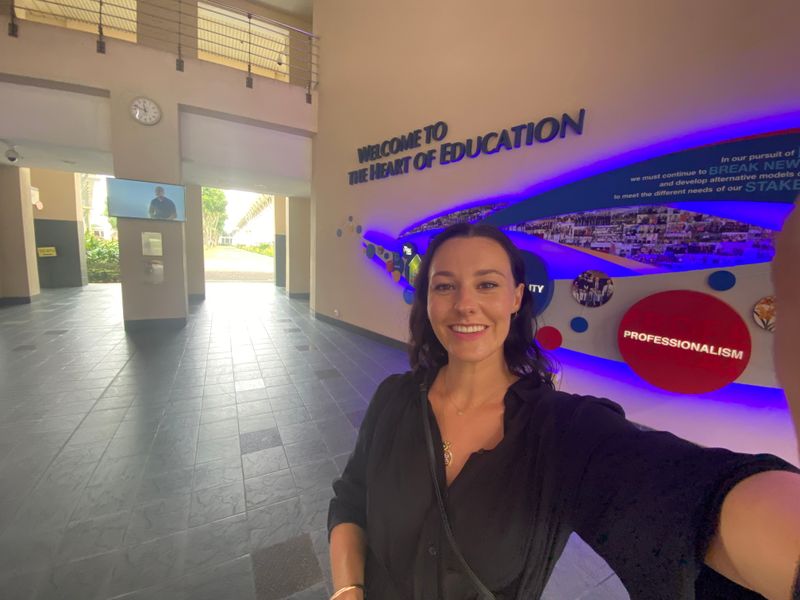
In 2024, I was fortunate to be awarded the inaugural Toowoomba Grammar School Teaching Fellowship to explore this interest more. My proposal, titled Enhancing Student Outcomes and Teacher Practice through Math Mastery: A Comprehensive Study Tour and Curriculum Framework Development, focused on investigating how the Math Mastery approach could strengthen both student understanding and teacher instruction in mathematics. This opportunity took me to Singapore to investigate the Math Mastery approach - an internationally recognised model of mathematics instruction that supports every student to achieve deep understanding through carefully sequenced, explicit teaching.
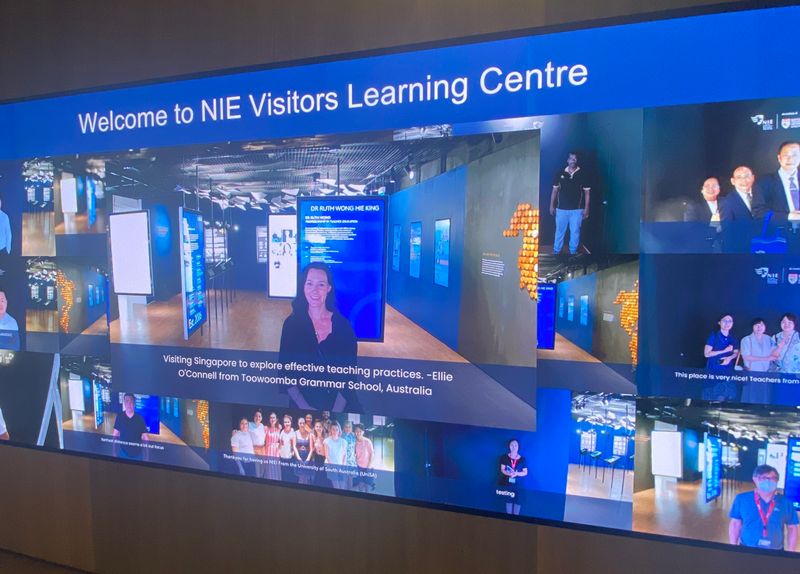
Why Mathematics? Why Now?
Across Australia, there is growing national concern about the long-term decline in mathematics achievement. Reports such as the Gonski Review (2018) highlight that many students are not mastering the basic skills needed for future learning, and that teachers need more explicit, structured tools to support all learners. In the early years of schooling—where concepts are first introduced, and mathematical mindsets are formed—it’s crucial that instruction is clear, consistent and effective. Gaps in understanding at this stage can have long-lasting effects on a child’s confidence and progress. The fellowship was an opportunity to examine international best practices and bring back evidence-informed strategies that could enhance both student outcomes and teacher practice in our own School.
Learning from Singapore: Schools and Insights
During my study tour in Singapore, I visited two leading international schools: Dulwich College and Invictus International School. Both schools use mastery-based approaches to mathematics, with structured, well-sequenced programs designed to develop deep conceptual understanding. At Dulwich College I observed math lessons from Years 1 to 5 that emphasised both mastery and practical application. The classrooms fostered a calm, focused learning environment in which teachers guided students through new concepts using clear, structured instruction, ensuring mastery through modelling, guided practice and checking for understanding before progressing. I also engaged in discussions with the school’s mathematics leadership team, who shared their planning processes and how they support teachers to differentiate within whole-class teaching.
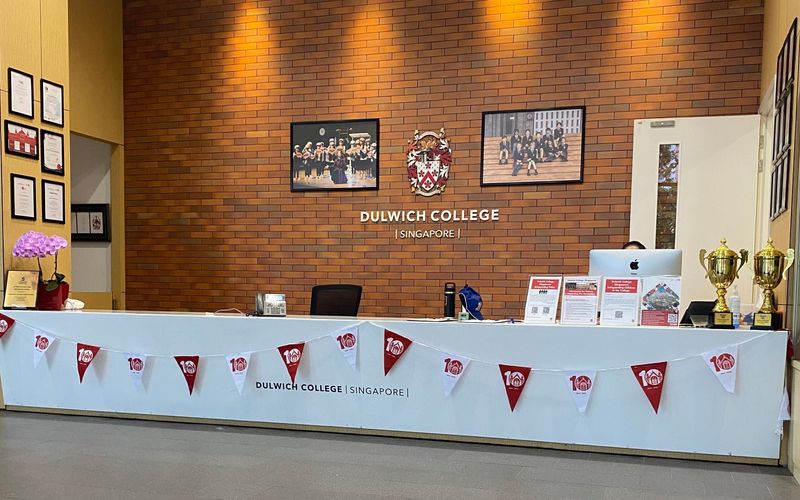
Invictus International School offered a contrasting yet equally valuable perspective. With a diverse cohort of learners and a flexible curriculum model, their team demonstrated how mastery principles can be embedded in a range of contexts. I also had the opportunity to meet with local educational consultants and curriculum developers, who offered insights into how Singapore’s national curriculum supports cumulative learning, daily review and concept mastery from the early years onwards.
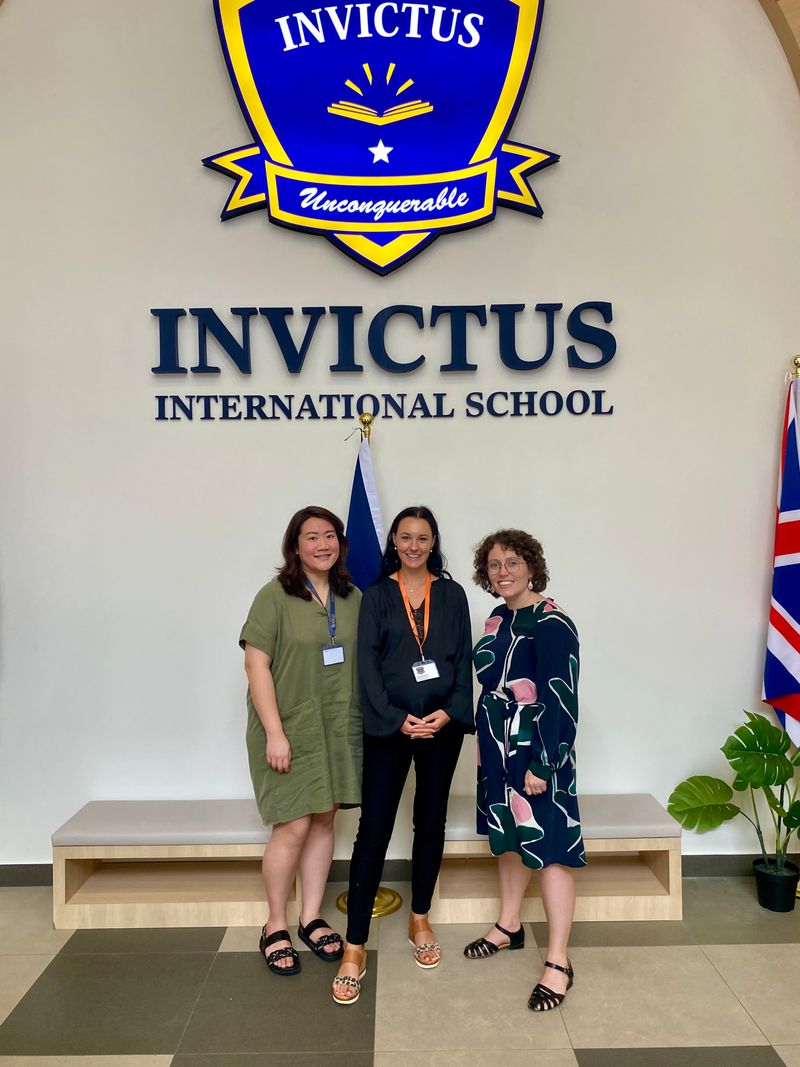
Key Findings: What Makes Mastery Work?
My observations confirmed the power of structured, explicit teaching in building strong foundations in mathematics. These were the key elements that stood out across all settings:
- Clear Learning Objectives
Teachers clearly define what students need to know and be able to do at the end of each unit or lesson.
- Whole-Class Instruction with Embedded Differentiation
Rather than streaming students by ability, mastery classrooms taught concepts to the whole class while using questioning, scaffolding and targeted support to meet individual needs.
- Corrective Instruction
Students who don't achieve mastery receive additional instruction or support to address knowledge gaps.
- Cumulative, Carefully Sequenced Learning
Each lesson built directly on the last, with time allocated for review and consolidation. This ensured that no student was left behind and that concepts were truly understood before new material was introduced.
- Mathematical Language and Reasoning
Teachers modelled precise vocabulary and encouraged students to explain their thinking. This supported deeper reasoning and helped students internalise core concepts.
- Learning Routines
Clear instructional routines and behaviours are established in every classroom, reinforcing expectations and supporting learning.
- Lesson Resources
Hands-on materials and visual examples are carefully chosen to help students connect with new concepts in ways that suit their learning needs.
- Fluency
Essential number facts are practised until automatic, helping students reduce cognitive load, enhancing students’ ability to focus on new and more complex ideas.
- Calm, Confident Learners
Most powerfully, students appeared confident, focused and proud of their mathematical thinking. The clear structure and shared learning journey contributed to a positive and inclusive classroom culture.
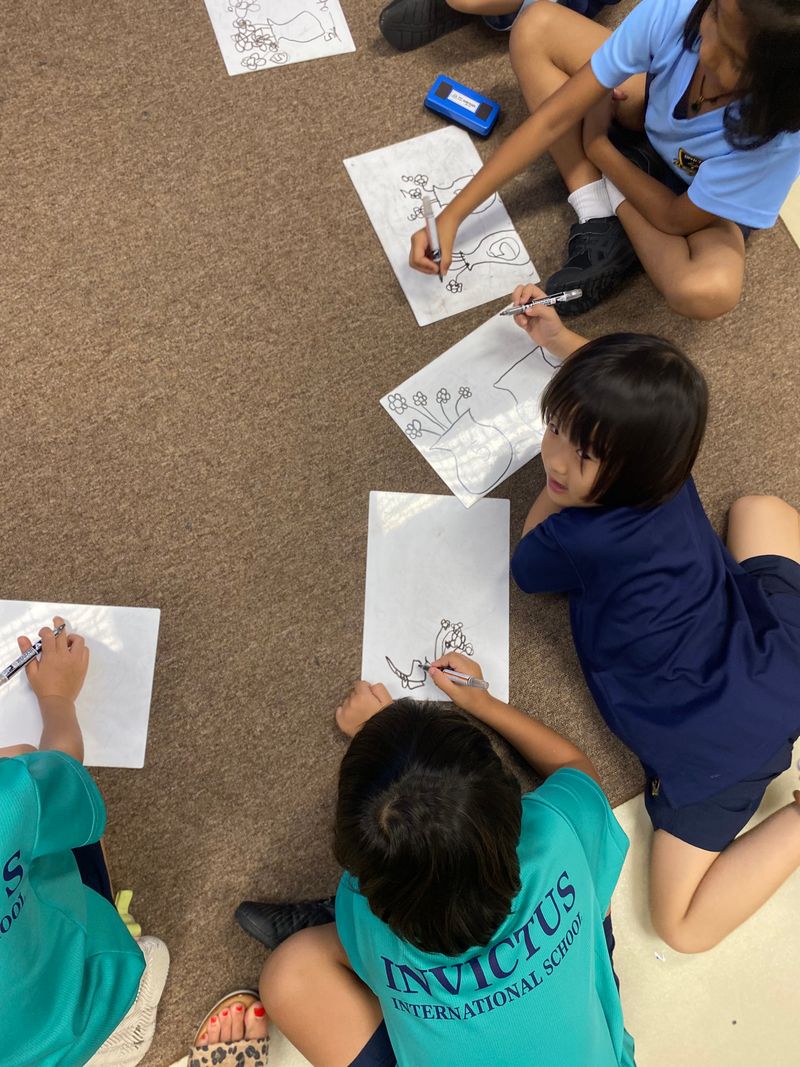
Global Perspective: Insights from Kinder World School
As a part of my research, I was able to engage in a conversation with Peter Baker, Principal Supervisor of 13 KinderWorld International Schools across Vietnam, I was able to dive deeper into how the Math Mastery approach works in large, diverse educational settings. These schools have adopted the Singapore Math model, a mastery-based framework built around explicit teaching and cumulative learning - many of the same principles I explored during my study tour.
Peter shared that their decision to adopt this approach was driven by a need for a consistent, evidence-based program that teachers could pick up quickly, deliver confidently and implement cost-effectively. “We started the explicit teaching model a couple of years back,” he explained. “We call it the KinderWorld Model. Retrieval practice to strengthen knowledge and problem-based application of learning is also included. I think it certainly makes a difference.”
What stood out to me in our discussion was just how closely their journey mirrors our own at TGS. We have already embedded strong practices in literacy through well-structured, whole-school programs that align with explicit teaching and the science of learning. However, mathematics remains an area where we see room for greater consistency and greater gains.
While our data confirms that we continue to perform above the state average in mathematics, recent NAPLAN results highlight a national decline in numeracy - a trend that we are aiming to avoid in our own School’s results. While we continue to do well, we have an opportunity and a responsibility to do even better for our boys. This is not just a local issue. In 2015, the Office of the Chief Scientist collaborated with ACARA to examine schools across Australia that had made significant improvements in numeracy over two years. Their report found that mastery-oriented environments were a consistent feature in high-performing schools (Smith et al., 2028).
When I asked Peter how the performance of his students compared to their peers in Australia, his response was compelling:
“We’ve had feedback from parents - many of whom are teachers - saying that when their children return to Australia, they are at least one to two years ahead in mathematics compared to their peers at home.”
This reinforces what global research has been saying for some time: structured, explicit, mastery-based teaching works. And more importantly, it works for all learners - not just the confident few.
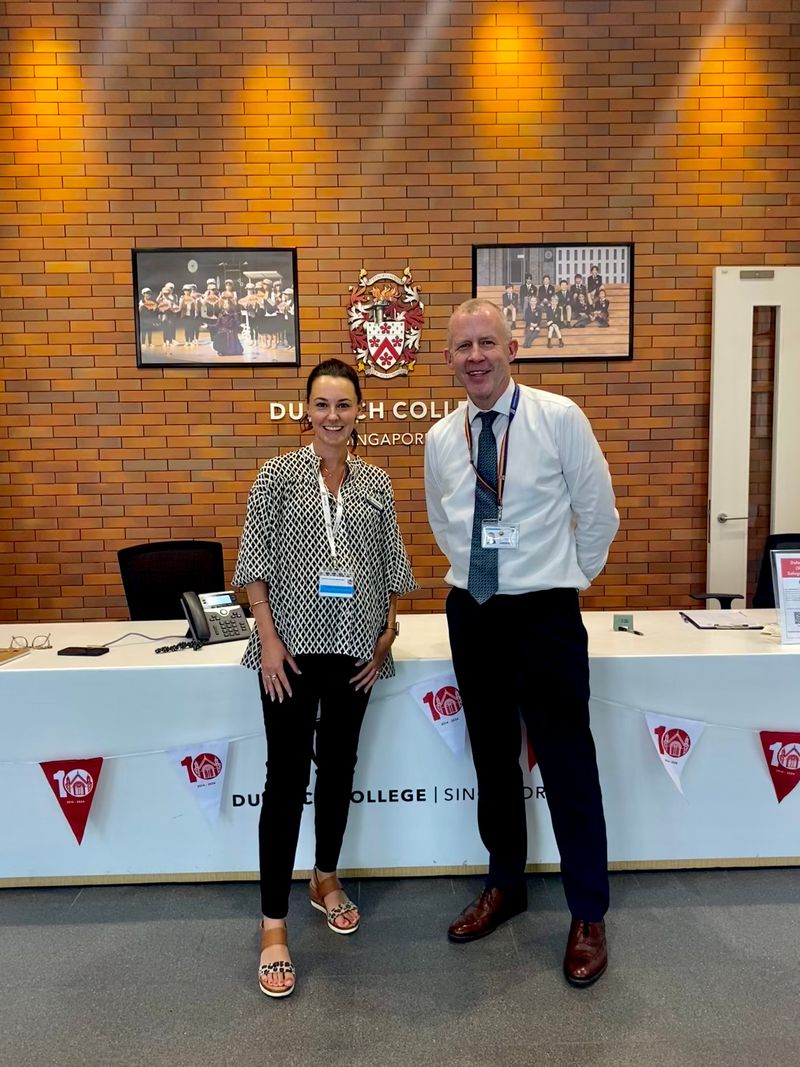
Bringing It Home: What’s Next for TGS?
I’m incredibly grateful for the opportunity this fellowship has provided - not only in shaping and deepening my own practice, but in contributing to a broader, shared vision for mathematics at TGS. This experience reinforced my belief that every student can succeed in mathematics when we give them the right tools, time and teaching. We are now laying the foundations for a clear and united approach to numeracy, one that will equip every boy with the confidence and skills to succeed - not just in the classroom, but throughout their schooling and beyond. And just as importantly, we’re building a community of confident teachers who are equipped to deliver lessons that are clear, consistent and deeply impactful.
I would like to sincerely thank Dr John Kinniburgh for granting me the opportunity to undertake this Fellowship. His support and encouragement throughout the process has been instrumental, and I am truly grateful for his guidance and mentorship. Dr Kinniburgh’s commitment to prioritising high-quality professional development for staff continues to shape a culture of growth and excellence in teaching and learning at TGS.
Latest Blog
When it comes to Music, Variety is the Spice of Life
In the Queensland Curriculum, the content of the music syllabus includes the study of the people, places and cultures involved in musical creation and performance. As our country becomes increasingly diverse, it is important for students in every school setting to study a wide variety of musical styles, cultures and genres. The Toowoomba Grammar School Music program of 2022 embraces this holistic approach to the study of music, encouraging teachers and students to explore a variety of musical…
A Trailblazer for Multicultural Australia
Wellington Lee has been described as a trailblazer for multicultural Australia. He was born in 1925 and attended TGS from 1940-42 before serving with the RAAF during WWII from 1943-46 and the Active Reserve of Officers from 1953-83. Mr Lee was a remarkable man of good character who lived in an exciting time of growth and change during Australia’s, and particularly Victoria’s history; the early days in Melbourne when 10% of their population was a thriving Asian community. It was also a…
REACH - Character Development in the Junior School
Being a kind person is fundamental to the growth of a successful person. Adults in our young men’s lives have a responsibility to model and teach the importance of respect, accepting and acknowledging our need to contribute to society in a positive and meaningful way. In 2016, the Junior School staff felt there was a need to create a program that allowed us to develop the character of the boys in the Junior School. Tailoring a program to meet our boys’ needs rather than a generic one allows…
The Grass is Always Greener
It’s time we put this age-old rumour to rest once and for all… The Toowoomba Grammar School ovals are not painted, dyed or manufactured grass; rather, the glorious green that greets passers-by as they drive into the Garden City comes from the sheer hard work and dedication of our TGS grounds team, led by Danny Beresford. Danny has exceptional pride for his grounds and a strong family connection to TGS. He is an Old Boy (2002-04) who played for the 1st XV in 2004 and was in the Track and Field…
A life in Words - Reading Biographies
Biography; from the Greek Bios - Life & Graphia - Writing; are books that chronicle the lives of real people. The subject of a Biography can be a celebrity, athlete, politician, athlete, historical figure or ordinary person that has achieved something of note. Reading Biographies is a valuable and oftentimes rewarding experience, with many potential benefits to the reader. Inspirational Biographies often recount successes and struggles of those people who have, over the course of their…
Spielberg in the Making...
I first became aware of film making when my brother showed me the behind-the-scenes featurette on our Lord of the Rings DVD. From then on, the process intrigued me, and I eventually got my hands on my dad’s camera and simple editing software. I made a bunch of little movies with my friends which were all pretty bad but I loved doing them anyway. What I liked most was that it was an easy way to share stories and even when the movies were not good, it was still a way of telling stories in a…
The Best Job in the World
Vocational Education and Training (V.E.T) plays a central role in preparing young people for work, developing skills, and responding to the labour-market needs of the economy. As the V.E.T Co-Ordinator at Toowoomba Grammar School, I have an immediate and positive influence on our young men’s skills, employability, and career development. I engage with the most amazing young men to guide their career journeys throughout Years 10, 11 and 12. I also have the privilege to work closely with their…
Inclusive and Exclusive Banter and Behaviour
As the School counsellor, who has been working in a variety of education systems, I would like to address a common and important issue that affects many of our teenage boys: banter, teasing, and bullying. Boys at this age are especially prone to these behaviours, and they can have a significant impact on their mental health and overall well-being. One of the most common mistakes for teenage boys "it's just banter" or "I'm just joking." While banter can be a positive thing and can help build…
I Have Returned to Where it Began and I Feel Right at Home
I have returned to where it all began, and I feel right at home. My parents decided when I was very young that I would attend Toowoomba Grammar School as a boarder. Coming from a property surrounded by a small community, my parents believed that sending me to TGS would provide me with many fundamental skills needed for a young man, as well as an education that I could not get in my hometown.. Starting my journey at TGS in Year 8 as a boarder in Mackintosh, adjusting from a small country high…